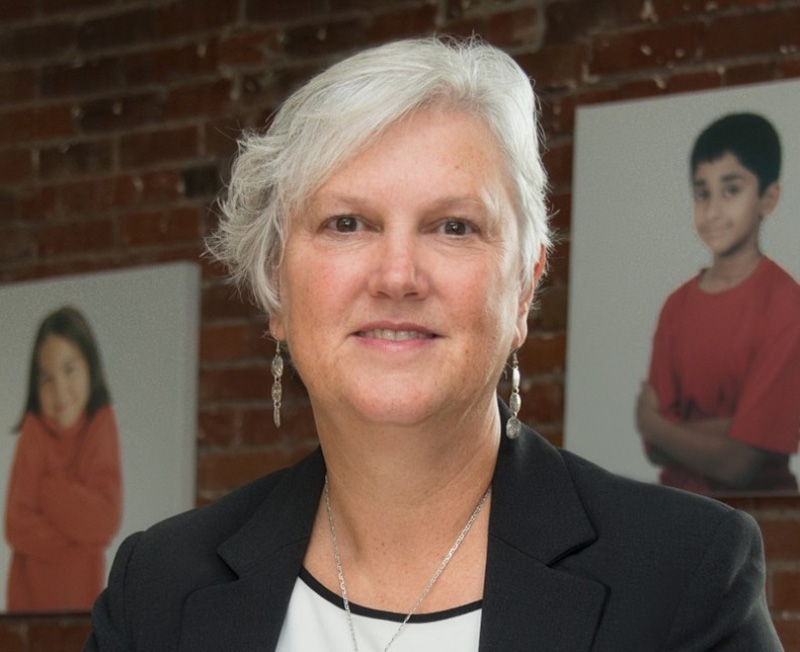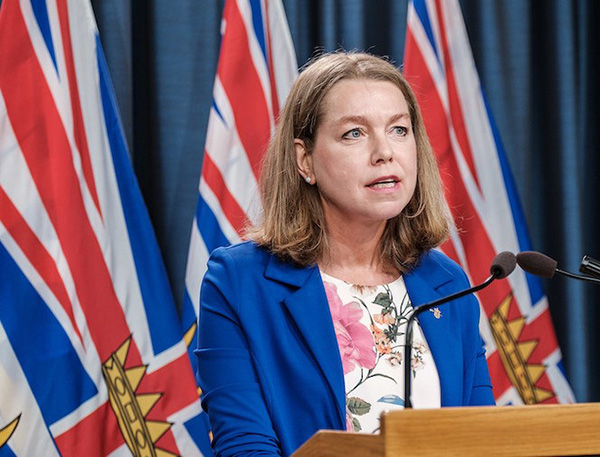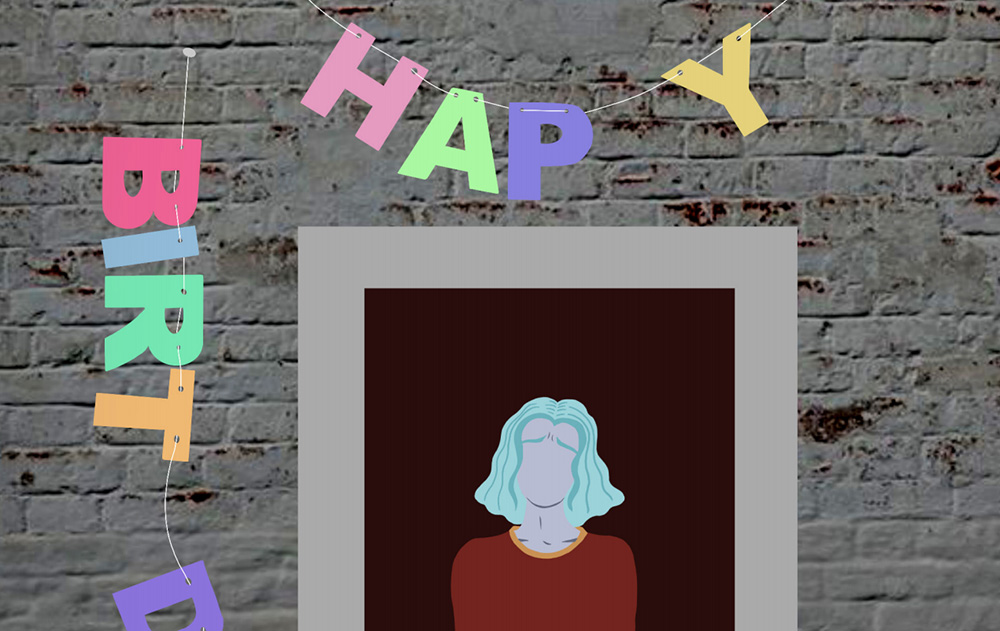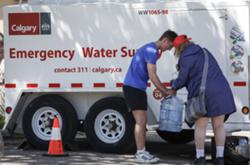It is an established fact the current system of transitioning young people from British Columbia’s child welfare system into independent adulthood is not successful.
Youth from care have been saying so for years. The Office of the Representative for Children and Youth has released five reports in the last six years saying as much. Even the Ministry of Children and Family Development, responsible for the province’s child welfare system, admits it.
Yet changes to how youth leave care, currently a cutoff of all supports on their 19th birthday, have been slow coming. Those young people ready to attend post-secondary have a patchwork of financial supports available to them that don’t quite cover the costs of living, but that’s it.
But a new report from the Representative for Children and Youth released Tuesday lays out a blueprint for success which includes providing youth housing, a transition worker and supporting them financially, emotionally, mentally and culturally up to their 27th birthday, if necessary.
The report is dedicated to Katherine McParland, a former youth in care whose tireless work to end youth homelessness in B.C. came to an abrupt end when she passed away unexpectedly on Dec. 4.
“For those of us whose 19th birthdays are solidly in the past, we can look back at those years now and see just how far we were from full adulthood at that age,” said Representative Jennifer Charlesworth at a Tuesday press conference for the report.
“Yes we could vote and get into bars. But the depth of knowledge and competency that comes with genuine adulthood was still years away.”
Two-thirds of the 5,437 children in care in B.C. today identify as Indigenous, making them 17 times more likely to end up in care than non-Indigenous children and youth.
Roughly 850 of those kids in care leave the child welfare system annually when they turn 19, a process often referred to as “aging out,” “transitioning to adulthood” or “transitioning out of care.”
That’s the day that, unlike youth who grow up with family, youth in care lose their foster care or group home placement, their social worker and any income support from the Ministry of Children and Family Development.
“These young people are expected to go full adult in a mere 24 hours,” said Charlesworth, adding there is years of B.C. research to show, “the abrupt end of government care is wrong. It’s wrong for human development, wrong for the future health of our province, wrong in terms of cost effectiveness.”
According to the report, which is a review of existing research and reports on the topic from B.C. and beyond, less than half of youth from care in B.C. graduate high school on time, compared to 85 per cent of all youth in the province.

Within six months of leaving care, almost half of young people will be on Income Assistance for Persons With Disabilities. Youth from care make up nearly 60 per cent of homeless youth in Canada, and anywhere from 40 to 60 per cent of youth who spent time in care have a psychological disorder.
Given these outcomes it's not surprising that youth from care are eight times as likely to have involvement with the youth criminal justice system than peers living with their families. They’re also more likely to die young.
The report estimates these adverse outcomes cost the province anywhere from $222,000 and $268,000 per young person.
“Investments in appropriate services now will not merely be offset, but will in the long run result in very considerable cost savings to government,” said Charlesworth. “We cannot afford not to implement these recommendations.”
The representative’s report echoes recommendations made by grassroots organizations like Fostering Change, whose research is cited in the report and whose own panel of youth from care reviewed the report to ensure it centred the voices of people with lived experience.
The seven recommendations are:
- Begin transition planning with youth starting at age 14 and extending beyond their 19th birthdays;
- Extend supports beyond 19, including but not limited to automatic enrollment in the Agreements with Young Adults program, until their 27th birthday;
- Collect longitudinal data on the outcomes of youth transitioning out of care, and the impact of services provided. Release data publicly and use it to evaluate ministry services;
- Create and implement a mental health and substance use plan for youth transitioning out of care;
- Create a provincewide network of transition workers through community agencies who will guide youth through their transition into adulthood up to age 27;
- Extend residential supports, for youth who need it, until age 27;
- Provide affordable housing designated for all young people transitioning out of care.
If implemented, British Columbia’s child welfare system would be the most expansive in the country in terms of length and breadth of supports for young people leaving government care.
Susan Russell-Csanyi, campaign organizer with Fostering Change, a grassroots organization composed of youth from care, said the recommendations support “holistic growth” for youth from care transitioning into adulthood.
“We hope that the seven recommendations are not only accepted but implemented by government in a timely manner, because they create equity in our community, and therefore provide the same tailored support a family would likely provide their own children,” Russell-Csanyi said.
However, Fostering Change doesn’t like the 27th birthday cutoff. Ideally there would be no hard line age cutoff, Russell-Csanyi said.
“As a campaign we don’t put any deadlines on our supports, because we believe all youth should have the opportunity to be supported throughout their growth,” she said, adding in some communities, youth doesn’t end until age 30.

Under the NDP, the province has made changes to how youth leave care. Tuition waivers for youth in and from care went from being a perk individual institutions offered to something available at all B.C. public institutions in 2017.
In 2018 the Children’s Ministry expanded the Agreements with Young Adults program, a monthly bursary open to certain youth from care who were enrolled in approved post-secondary, addictions or life skills programming.
Monthly payments went to $1,250 per month from $1,000; the cutoff age increased to 27 from 26; and coverage was extended to a full calendar year, not just when classes were in session.
However, according to the representative’s report, the impact of these changes on youth leaving care has been minimal. Particularly since there are next to no supports for the nearly 50 per cent of youth from care who have yet to earn their high school diploma.
According to the report only 36 per cent of the youth eligible for the AYA have accessed the program in the past seven years. Enrollment is not automatic once you enrol in post-secondary, life skills or addictions or mental health treatment: to benefit from the AYA, you have to know it exists.
You also have to have been in care involuntarily until your 19th birthday. If you leave even just months before that date or you went into care voluntarily, you are not eligible for the program.
At maximum, those who do receive the benefit will receive $15,000 annually — $5,000 less than the Ministry of Social Development and Poverty Reduction’s own poverty line for a single adult. Yet if youth work during this time they can see their AYA benefits clawed back once a certain income threshold is reached.
And while the AYA recognizes a wide array of post-secondary and vocational programs, only 15 providers in 11 B.C. communities provide life skills courses approved by the ministry for the AYA. And unlike post-secondary programs, life skills courses can be as short as one month.
During the pandemic the ministry pivoted quickly to extend the AYA program even while classes and courses were on hold, and extended residential supports for youth transitioning out of care so they could stay with their foster family or group home until they were ready to leave.
Minister of Children and Family Development Mitzi Dean cited these improvements when speaking to The Tyee about the report, adding improving outcomes for youth from care is part of her ministerial mandate letter from Premier John Horgan.
“The system that’s been in place for many, many years now has just been programs and not a systematic approach,” Dean said. “So we need to build a system that supports youth and starts supporting them when they’re 14 and into successful adulthood.”
Dean would not commit to implementing any of the recommendations, but said she would review them as part of her commitment to her mandate.
But she has already asked for a meeting with Attorney General David Eby, who is also responsible for housing, to discuss housing specifically for all youth at risk of or experiencing homelessness.
“There are a number of priorities that I will be putting together in my proposal going to cabinet and to treasury board,” she said.
“For a long, long time this ministry experienced cutbacks and was neglected,” Dean added, referencing the 16 years of BC Liberal rule prior to the NDP first forming government in 2017.
“And was not very well funded. There’s a lot to catch up on, there’s a lot more work to do.”
While the report gives the government until April 2022 to comply with the recommendations, Representative Charlesworth says there are several changes the government could implement immediately, like making the pandemic extension of residential and AYA supports permanent.
Those supports are set to expire at the end of March 2021. ![]()
Read more: Rights + Justice, BC Politics

















Tyee Commenting Guidelines
Comments that violate guidelines risk being deleted, and violations may result in a temporary or permanent user ban. Maintain the spirit of good conversation to stay in the discussion.
*Please note The Tyee is not a forum for spreading misinformation about COVID-19, denying its existence or minimizing its risk to public health.
Do:
Do not: